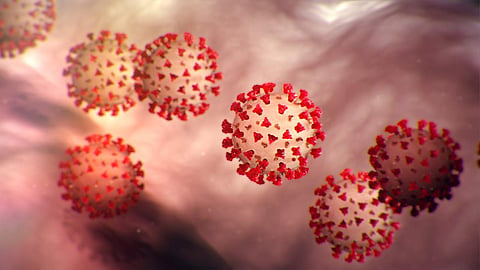

Researchers are working on a test to detect the novel coronavirus in the wastewater of communities infected with the virus, a development that can help curtail COVID-19 spread via contaminated water sources.
According to the scientists, including those from the Cranfield Water Science Institute in the UK, this approach may provide an effective way to predict the potential spread of the virus by picking up signatures of it in faeces and urine from disease carriers that enter water systems.
The study, published in the journal Environmental Science & Technology, noted that rapid testing kits using paper-based devices could be used on-site at wastewater treatment plants.
It said such kits can be applied to trace sources and determine whether there are potential COVID-19 carriers in local areas.
"In the case of asymptomatic infections in the community or when people are not sure whether they are infected or not, real-time community sewage detection through paper analytical devices could determine whether there are COVID-19 carriers in an area to enable rapid screening, quarantine, and prevention," said Zhugen Yang, study co-author from the Cranfield Water Science Institute.
According to the scientists, wastewater-based epidemiology (WBE) approach can help monitor COVID-19 at an early stage in communities, enabling public health authorities to take effective intervention as early as possible to restrict the movements of that local population.
Citing recent studies, they said live samples of the novel coronavirus, SARS-CoV-2, can be isolated from the faeces and urine of infected people, in which the pathogen can survive for up to several days after exiting the human body.
The study noted that the paper device is folded and unfolded in steps to filter the genetic material of pathogens from wastewater samples. Following this, the scientists said a biochemical reaction with preloaded reagents detects whether the genetic material of SARS-CoV-2 is present.
Results are visible to the naked eye as a green circle indicating positive and a blue circle negative, they added. "We have already developed a paper device for testing genetic material in wastewater for proof-of-concept, and this provides clear potential to test for infection with adaption," Yang said.
The study noted that the device has the potential to be used as a small, portable tool to detect SARS-CoV-2 in wastewater on site, and to track virus carriers in the community "We foresee that the device will be able to offer a complete and immediate picture of population health once this sensor can be deployed in the near future," Yang added.
